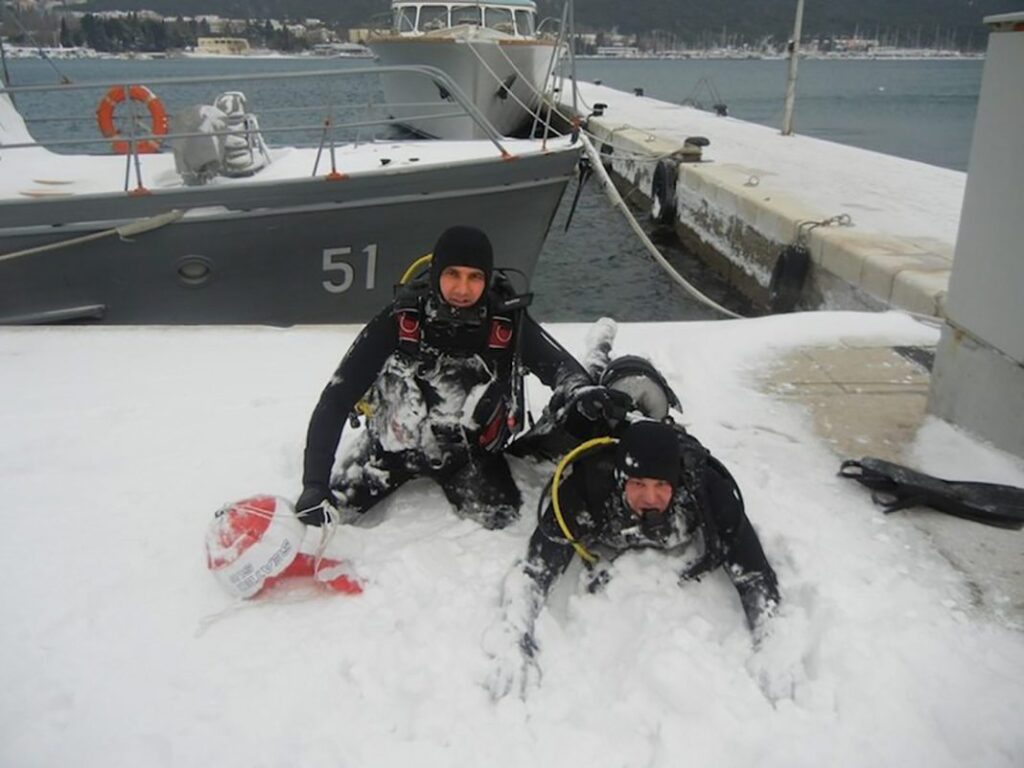Cold weather can be very uncomfortable, but it should by no means be a serious reason to postpone your diving plans. ScubaDivingCorner advises you to pay attention to a few things during this winter season before taking the plunge.
Regulator for winter diving
Let’s start with the regulator. The advice here is simple: pay attention to the manufacturer’s recommendation. The regulator must be designed for the temperatures in which you will be diving. Using a regulator at a temperature for which it is not specified can lead to freezing and an interruption of airflow. More experienced divers will have a backup regulator prepared for such dives. It all depends on your plans and the location where you are diving. The limit is six degrees Celsius; below or at this temperature, regulators for cold water should be used.
Suit for winter diving
The next item is the diving suit, and the right choice of suit can make your diving as comfortable as if you were in warmer waters. Believe it or not, you don’t need to spend a fortune to achieve this; inquire thoroughly before making a purchase. In various diving locations worldwide and during winter, you can dive in a semi-dry or even a wet diving suit, but it’s certainly not the best choice. However, just like in dry suits, additional layers of neoprene underneath can make diving comfortable. Don’t forget that extra layers of neoprene under a semi-dry or wet suit require additional weights for diving. Of course, it should be mentioned that nothing is as effective as a good dry suit, especially with proper undergarments. You need special training for it, but if you’re determined not to stay out of the water throughout the year, it’s the solution for you.
Gloves for winter diving
Diving gloves are also an essential part of the equipment needed for winter dives. There is indeed a wide range of shapes and thicknesses—dry, semi-dry, etc.—among which you can choose. Try them, and everything will become clear, and you might even start using them later for warmer dives. Even ordinary 5-millimeter neoprene gloves will protect your hands during winter diving, and that’s a good price-to-quality ratio.
Diving hood for winter
Next is the diving hood. Perhaps it’s strange to even mention it, as it seems like an item you wouldn’t think about for a colder dive, but we’ll highlight it just in case. A 3-millimeter hood can effectively protect your head from the cold during winter diving, but make sure it’s not too tight.
Read our tales stories about “Cold Adventures and Scuba Diving under the Ice.” or “Scuba Diving In Antarctica.“
